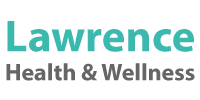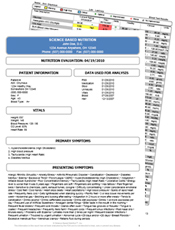A little golden bee tells us nearly every time we turn on the TV that lowering your cholesterol will give you a healthy heart. Over the years high cholesterol has been the scapegoat for a plethora of heart/age related problems and foods containing higher amounts of cholesterol (like nutritious eggs – see our newsletter from May 2007) have gotten a bad rap. But cholesterol is not necessarily the demon made out by the media. In fact it is an essential part of our cellular makeup, is necessary for fat digestion, the utilization of vitamin D and hormone production. While optimal cholesterol levels are best, high cholesterol can work as a protector for your heart if underlying conditions arise. Low levels however, are dangerous.
High Cholesterol
- Is Associated With Longevity Among The Elderly
- Protects The Body Against Infections
- Reduces The Risk Of Death From Heart Failure/Heart Attacks
- Protects The Heart From Stress/Injury
Low Cholesterol
- Puts you at greater risk for infection/diseases
- Is Linked To Malabsorption/Malnutrition
- Decreases Vitamin D Production
- Reduces the metabolism of fat soluble vitamins, including vitamins A, D, E, and K.
A large study at the UCLA Department of Medicine and Cardiomyopathy Center in Los Angeles followed more than one-thousand patients with severe heart failure for 5 years. At the end of the study 62% of patients with cholesterol levels below 129mg/l died while the mortality rate for patients with levels above 223 mg/l was only about 30%.
In 1994 the Department of Cardiovascular Medicine at Yale University reported that elderly people with low cholesterol were twice more likely to die from a heart attack than those with high cholesterol. Nearly every study to date has also found that high cholesterol doesn’t increase the risk of heart attack for women at all. In fact, mortality has been proven inversely associated to both total and LDL cholesterol. This goes against the traditional theory that LDL is your “bad cholesterol” causing plaque build-up followed by cardiovascular disease or heart attacks.
While it’s true that LDL can build on artery walls when too many bad fats are consumed, it has also been shown to bind and inactivate dangerous bacterial toxins and be a vigilant crusader against infections. For example, the bacterium Staphylococci produces a very toxic substance called Staphylococcus aureus a-toxin which can quickly destroy a wide variety of human cells. If you add even minute amounts of this toxin to a test tube of red blood cells, the cells hemolyze (meaning the red blood cells burst). However, if you add LDL to the mix, their destruction practically ceases.
These protective attributes were shown again in a study at the University of Pittsburg which found that all forms of white blood cells were significantly lower in otherwise healthy young and middle aged men whose LDL cholesterol values were below 160mg/l than men with LDL levels greater than 160mg/l. This led them to conclude that there are differences in immune system function between men with low and high cholesterol.
In a similar finding, researchers at the Division of Epidemiology at the University of Minnesota found that low cholesterol levels were associated with an increased risk of dying from gastrointestinal and respiratory diseases. To further study this finding, they followed 100,000 “healthy” people for 15 years and found that those who had low cholesterol levels at the beginning of the study were far more likely to be admitted to the hospital for an infectious disease than those who started with high cholesterol. Their conclusion – low cholesterol makes you vulnerable to infectious diseases.
Doctors are quick to vouch for the benefits of high HDL which delivers cholesterol to the adrenals, ovaries, and testes, is important for the synthesis of steroid hormones and transports cholesterol away from the arteries and into the liver for excretion or re-utilization. It also has valuable protective properties against the onset of cardiovascular diseases as well as dementia. But they fail to understand the potential life-saving benefits of other forms of cholesterol recommending a cholesterol lowering drug instead of finding the cause behind heightened values.
Along with LDL, VLDL is also considered bad for your health and has been dubbed your “very bad cholesterol” due to its buildup on artery walls. But VLDL lipoproteins can also play a part in protection because they are carriers of the largest amounts of Triglycerides through the body. Triglycerides have been proven to rise as a normal immune system response to infection and are especially important at reducing endotoxins produced by gut bacteria.
These bacteria and other microorganisms are now being linked to chronic heart failure which may help redeem cholesterol. A study from the Martin Luther University in Germany found that the strongest predictor of death for patients with chronic heart failure was the concentration of cytokines in the blood. Cytokines are secreted by white blood cells as they battle invading organisms. As seen in all of the above cases, high cholesterol is not necessarily a bad thing and can be a great mode of protection.
If you already have healthy cholesterol levels this does not mean you should strive to obtain high cholesterol, but with so much research proving the benefits of high cholesterol, why are young/middle aged men warned so adamantly about the risk factors for future coronary heart disease associated with high cholesterol? This is where cholesterol is likely made a scapegoat. Think of it this way, high cholesterol is a marker of the problem not a cause. For example cytokines = increased immune system response = higher cholesterol levels.
Cholesterol is a building block for hormones that regulate blood sugar, blood pressure, stress, balance minerals and the many functions of progesterone and estrogen. So if you eat a poor diet high in carbs, bad fats and sugars, if you are under stress which causes your blood pressure to rise or if your immune system is weak from battling an infection your cholesterol levels in turn will also seek new heights. If you simply take a beta-blocker to bring down your high cholesterol, has the true issue been addressed? Worse – what will happen without the boost of cholesterol to balance out your other problems? Before submitting to quick-fix medications for high cholesterol get a comprehensive blood test and get to the source of the problem.

